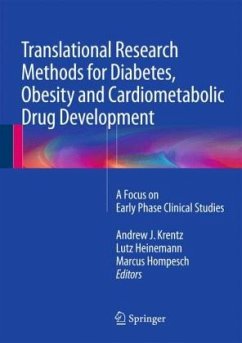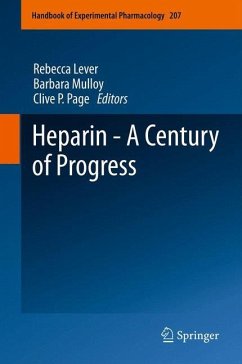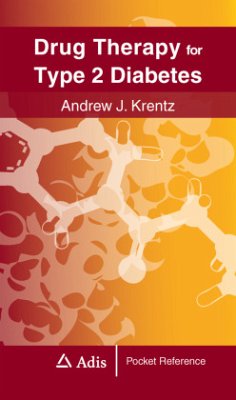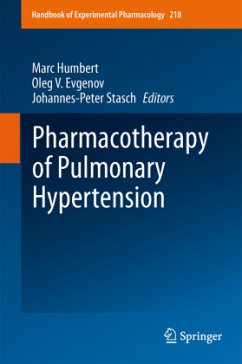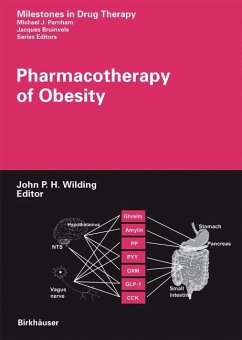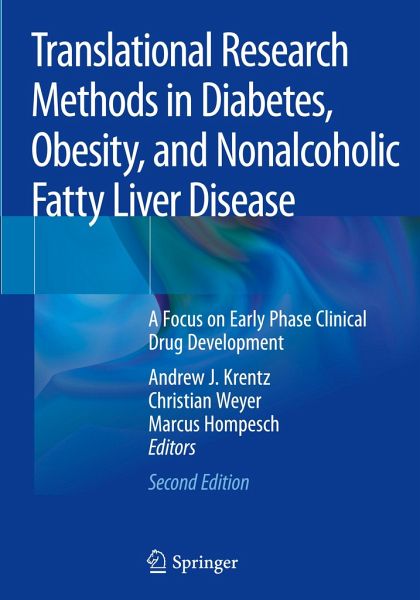
Translational Research Methods in Diabetes, Obesity, and Nonalcoholic Fatty Liver Disease
A Focus on Early Phase Clinical Drug Development
Herausgegeben: Krentz, Andrew J.; Weyer, Christian; Hompesch, Marcus

PAYBACK Punkte
61 °P sammeln!
This book aims to aid the selection of the most appropriate methods for use in early phase (1 and 2) clinical studies of new drugs for diabetes, obesity, non-alcoholic fatty liver disease (NAFLD) and related cardiometabolic disorders.Clinical research methods to assess the pharmacokinetics and pharmacodynamics of new diabetes drugs, e.g. the euglycemic clamp technique, have become well-established in proof-of-mechanism studies. However, selection of the most appropriate techniques is by no means straightforward. Moreover, the application of such methods must conform to the regulatory requireme...
This book aims to aid the selection of the most appropriate methods for use in early phase (1 and 2) clinical studies of new drugs for diabetes, obesity, non-alcoholic fatty liver disease (NAFLD) and related cardiometabolic disorders.
Clinical research methods to assess the pharmacokinetics and pharmacodynamics of new diabetes drugs, e.g. the euglycemic clamp technique, have become well-established in proof-of-mechanism studies. However, selection of the most appropriate techniques is by no means straightforward. Moreover, the application of such methods must conform to the regulatory requirements for new drugs.
This book discusses the need for new pharmacotherapies for diabetes, obesity and NAFLD and the molecular targets of drugs currently in development. Emerging technologies including functional imaging, circulating biomarkers and omics are considered together with practical and ethical issues pertaining to early phase clinical trials in subjects with cardiometabolic disorders.
Translational Research Methods in Diabetes, Obesity, and Non-Alcoholic Fatty Liver Disease is of interest to biomedical scientists, pharmacologists, academics involved in metabolic research and clinicians practicing in these specialties.
Clinical research methods to assess the pharmacokinetics and pharmacodynamics of new diabetes drugs, e.g. the euglycemic clamp technique, have become well-established in proof-of-mechanism studies. However, selection of the most appropriate techniques is by no means straightforward. Moreover, the application of such methods must conform to the regulatory requirements for new drugs.
This book discusses the need for new pharmacotherapies for diabetes, obesity and NAFLD and the molecular targets of drugs currently in development. Emerging technologies including functional imaging, circulating biomarkers and omics are considered together with practical and ethical issues pertaining to early phase clinical trials in subjects with cardiometabolic disorders.
Translational Research Methods in Diabetes, Obesity, and Non-Alcoholic Fatty Liver Disease is of interest to biomedical scientists, pharmacologists, academics involved in metabolic research and clinicians practicing in these specialties.



